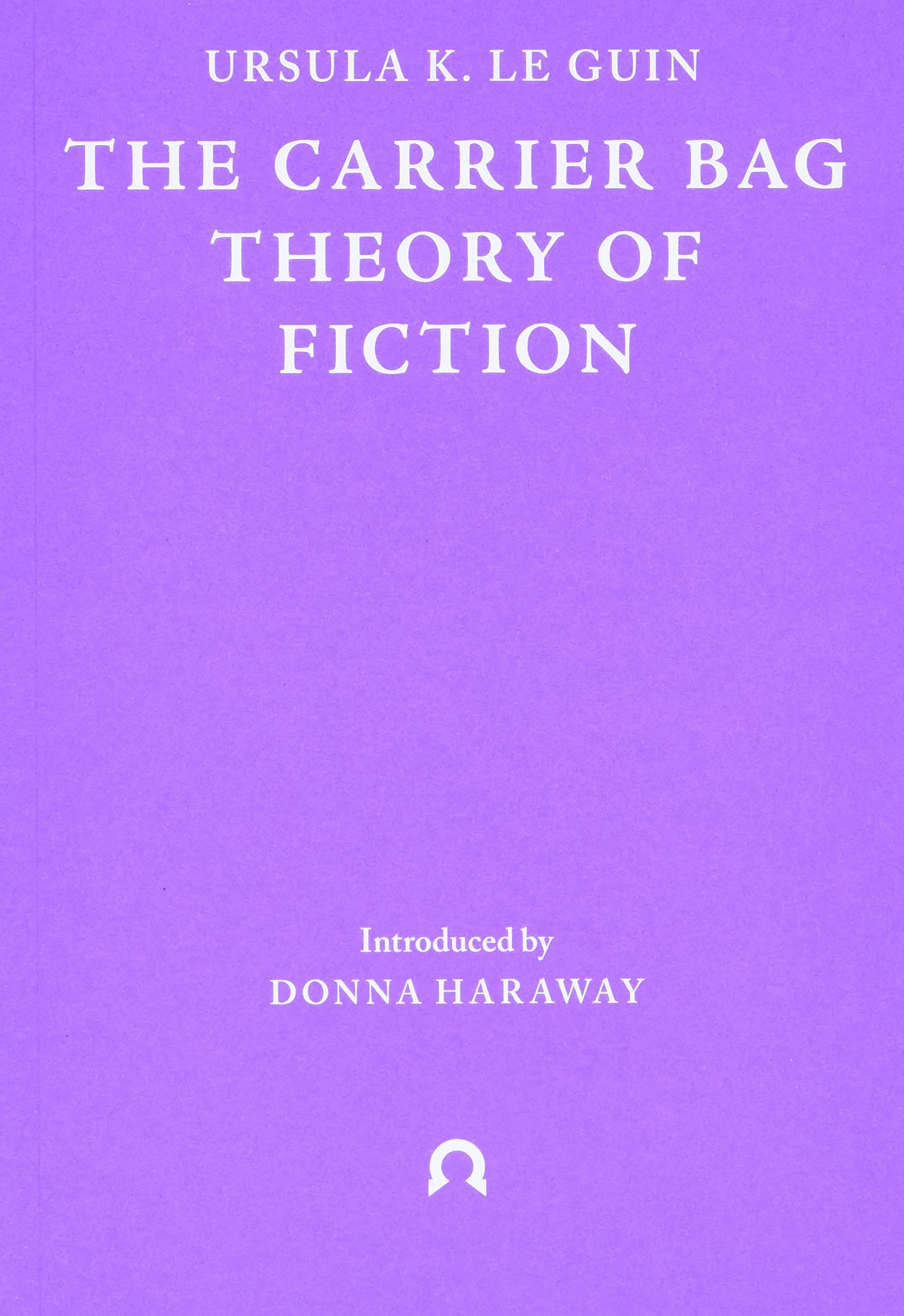
The carrier bag theory of fiction
Ursula K. Le Guin
The novel is a fundamentally unheroic kind of story. Of course the Hero has frequently taken it over. [...] So the Hero has decreed through his mouthpieces the Lawgivers, first, that the proper shape of the narrative is that of the arrow or spear, starting here and going straight there and THOK! hitting its mark (which drops dead); second, that the central concern of narrative, including the novel, is conflict; and third, that the story isn't any good if he isn't in it. I differ with all of this. I would go so far as to say that the natural, proper, fitting shape of the novel might be that of a sack, a bag. A book holds words. Words hold things. They bear meanings. A novel is a medicine bundle, holding things in a particular, powerful relation to one another and to us.
If science fiction is the mythology of modern technology, then its myth is tragic. "Technology," or "modern science" [...], is a heroic undertaking, Herculean, Promethean, conceived as triumph, hence ultimately as tragedy. The fiction embodying this myth will be, and has been, triumphant (Man conquers earth, space, aliens, death, the future, etc.) and tragic (apocalypse, holocaust, then or now). If, however, one avoids the linear, progressive, Time's- (killing)-arrow mode of the Techno-Heroic, and redefines technology and science as primarily cultural carrier bag rather than weapon of domination, one pleasant side effect is that science fiction can be seen as a far less rigid, narrow field, not necessarily Promethean or apocalyptic at all, and in fact less a mythological genre than a realistic one. It is a strange realism, but it is a strange reality.